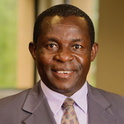Contribution to Book
Kenya at 50: Contextualization of Her Post Independence Sporting Success
Kenya After Fifty: Education, Gender and Sports
(2016)
Abstract
Kenya has distinguished itself as a powerful sporting nation over the years which has in turn helped to project a positive image for the country in the global arena (Gachie, 2014). The athletic accomplishments of middle- and long-distance runners from Kenya are virtually known and talked about around the world. Thus, sports has contributed immensely toward enhancement of the growth, development, and general quality of life of Kenyan youth as well as the country’s international image. However, there is need for diversification, for developing a variety of disciplines that can earn more medals in continental and global competitions. Currently, medals are being earned mainly from middle- and long-distance running. Sports and recreation in general are meaningful leisure outlets for people, not only in Kenya but across the globe. The history of sports in Kenya dates back to the precolonial period. The people of Kenya were actively involved in traditional sports such as dancing, wrestling, hunting, traditional archery, and other sports that were mainly confined within the various indigenous communities (Mählmann, 1988; Mazrui, 1986; Njororai, 2009; 2010; 2012). After colonization by the British, new sports such as golf, tennis, cricket, horse racing, and polo were introduced exclusively for the European settlers, while soccer, boxing, and athletics (i.e., track and field) were for the indigenous people (Mählmann, 1988; Manners, 1997; Mazrui, 1986; Njororai, 2010; 2012; Stuart, 1993; Tulloh, 1982).
Keywords
- Olympic Game Sport Organization World Championship Sport Discipline National Sport
Disciplines
Publication Date
2016
Publisher
Palgrave Macmillan
Citation Information
Wycliffe W Njororai Simiyu. "Kenya at 50: Contextualization of Her Post Independence Sporting Success" Kenya After Fifty: Education, Gender and Sports (2016) p. 125 - 146 Available at: http://works.bepress.com/wycliffe-njororaisimiyu/31/
